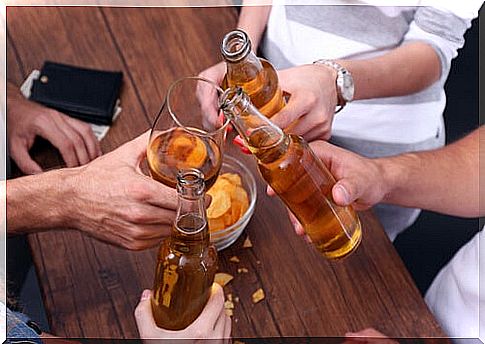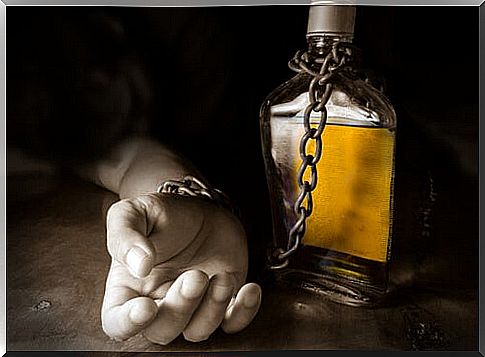The Fine Line Between Alcoholism And Habit

Today you left work and like every Friday afternoon you have arranged to have a few drinks with your friends. It is your tradition and almost your only way to keep in touch. But this afternoon will be different, one of your friends releases a news that surprises everyone, they have been diagnosed with alcoholism and this habit of meeting every Friday to drink is part of the problem.
This bomb makes you and your friends stay in shock , that you think it is a joke, but it is not, it is a real problem and unfortunately very common, but also, very difficult to understand. It is difficult to understand because you also drink, you also go to those meetings with your friends and participate in that habit, but you do not have alcoholism, you are not an alcoholic, or so you think.
Then the doubts and questions begin, what makes you an alcoholic? Why are some people more susceptible to alcoholism than others? Can a habit lead you to alcoholism? If you keep reading you will find the answers.

Alcoholism or habit?
Diagnostic classifications, such as DSM-5, define alcohol use disorder outside the criteria necessary for its diagnosis as “a grouping of behavioral and physical symptoms, among which are abstinence, tolerance, and intense desire to drink. ”.
Within the criteria, on the other hand, they emphasize the frequency and recurrent consumption of alcohol as an essential part for their diagnosis, but could this recurrent consumption be considered a habit?
But is it the habit itself that generates an addiction? The answer is a resounding no. An addiction, in this case alcoholism, is a disease that develops thanks to the fact that different bio-psycho-social factors are set in motion, going from a simple habit to an abusive consumption that modifies the brain structure and behavior of the subject.
In other words, it is a conjunction of biological, social and behavioral factors that make a habit, like drinking with your friends, become something else, an addiction. And this is the most dangerous, because there are some factors that we control and others that we do not, making it difficult to predict who in the same situation will develop addiction and who will not.

Why will some develop alcoholism and others not?
So, why within that group of friends that we talked about at the beginning, one will develop alcoholism and the rest will not? The factors that influence the development of alcohol addiction can be summarized as:
Biological factors
The biological factors that help the development of alcoholism range from genetic inheritance to the alteration of different neurotransmitters and brain structures promoted by the habit of consumption, which in subjects predisposed to addiction is a more rapid modification.
Regarding brain structures and neurotransmitters, it has been discovered that dopamine is involved at the beginning of addictions since it is related to pleasure, as is the so-called brain reward system, composed mainly of the Ventral Tegmental Area, among other structures.

Psychological factors
The perception that the subject himself has of alcohol consumption and the use he makes of it can be very important. If in the group of friends we were talking about at the beginning, the one who has developed alcoholism used to boast of being the one who could endure drinking the longest, he probably drank much more than his peers.
In addition to putting their own health at risk, generating a harmful habit, which was no longer controllable and became an addiction. For this reason, the behavioral guidelines during adolescence, which is where this type of behavior begins, for the control of consumption and the devaluation of the need for social validation are very important.
Social factors
The perception of the drinking behavior and the availability of alcohol in the society in which the subject is immersed is also very important. It has been shown that in societies that are more permissive with alcohol consumption there are higher levels of alcoholism.
For all this, it should be noted that there is a fine line between habit and alcoholism. Along these lines, there are factors that fall under the control of the subject himself, such as his behavior, and others that are not, such as his biological risk, so you have to be very careful and always consume alcohol in moderation, and even, avoid its consumption.









